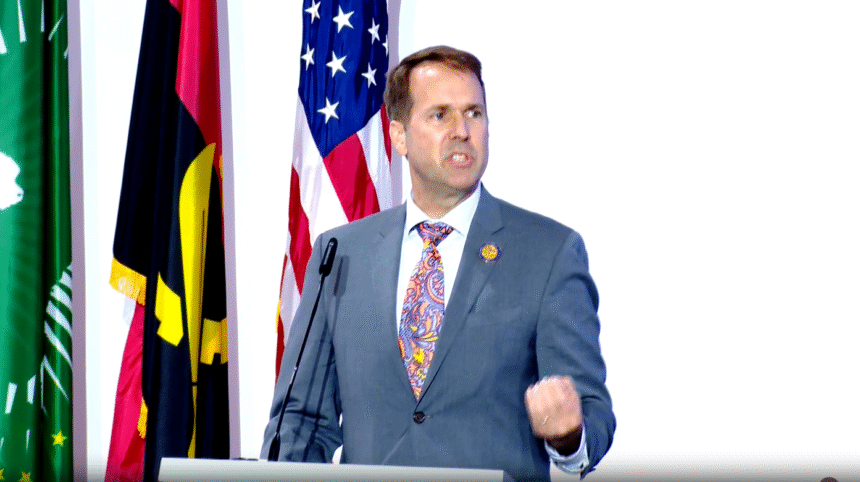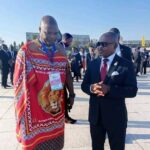LUANDA – The United States has dismissed growing concerns over proposed tariff hikes and visa restrictions targeting African countries, while restating its support for the multi-billion-dollar Lobito Corridor railway project that cuts across Angola, Zambia and the Democratic Republic of Congo.
Speaking at the U.S.-Africa Business Summit in Luanda on Tuesday, U.S. Assistant Secretary of State for African Affairs, Ambassador Troy Fitrell, responded to mounting criticism from African Union officials, who accused Washington of adopting trade and visa policies that undermine efforts to deepen cooperation with the continent.
“There is no visitation ban,” Fitrell said, reacting to claims that African travellers — especially from West Africa — are being disproportionately denied U.S. visas. He acknowledged that some visas now come with reduced validity periods, citing concerns over prolonged stays, but said consular services continue to issue visas as normal.
The backlash follows a noticeable drop in visa approvals since late 2023, with African business leaders warning of increased hurdles to travel, even as talks of stronger trade ties are underway.
At the heart of the discontent is Washington’s plan to introduce import tariffs — starting at 10% — on key African exports, including apparel and minerals. Countries like Lesotho and Madagascar have warned that the proposed levies could devastate industries heavily reliant on duty-free access to U.S. markets under the African Growth and Opportunity Act (AGOA), which expires in September.
Fitrell said the tariff proposals were not final, and discussions were ongoing to shape a more balanced trade framework. He suggested that AGOA’s renewal could still form the basis of a new, mutually beneficial agreement.
He also reaffirmed that the U.S. remains fully committed to the Lobito Corridor railway, dismissing speculation that delays in funding might derail the project. “It’s not at risk,” he said, describing the initiative as a “win-win” for both U.S. investors and African economies seeking to unlock regional integration through improved infrastructure.
Angolan President João Lourenço, addressing delegates at the summit, challenged American companies to shift their approach to Africa from donor aid to long-term investment. He called for deeper involvement in industries like car manufacturing, shipbuilding, tourism, cement, and steel.
“It is time to replace the logic of aid with the logic of investment and trade,” Lourenço said, urging the U.S. to position itself as a serious economic partner in Africa’s future.






